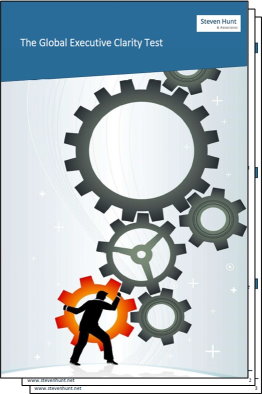It’s not the thought that counts when it comes to executing tasks at speed.
Think of birthday presents. The old saying when finding a present is, “It’s the thought that counts.” No. That thought is an input. The output is the present you put in your mother’s hands. It’s obvious which is more important on her birthday.
This little analogy explains how most companies are too slow to take action.
In classical systems thinking, you have: (1) inputs, (2) process, and (3) outputs or results. Inputs are what you start with to create outputs. Unfortunately, too many meetings and far too many planning sessions focus on the inputs. Long, pointless discussions ensue.
All of us must execute tasks in a more complex world. Business is not getting faster; the business environment is getting more complex. Today, the winners are the brilliant managers who at execute tasks at speed.
If you want to increase your execution speed, where to start? Here is one tried-and-tested fundamental of execution speed. Use it and you dramatically cut the time it takes to get things done.
The fundamental is: focus on results (outputs), not inputs.
We recently worked with a team of middle managers who were struggling with a classic challenge. They needed a stubborn senior manager (from another business unit in another country) to share crucial information on his project deliverables. We could have had a long “moan-and-groan” discussion about the senior manager’s personality, problems, and failings.
Instead we immediately identified the outcome needed, and within five minutes we had seven realistic, alternative ways to get the information. All it took was creative thinking.
The seven alternatives included: asking other senior managers with more influence, making the benefits clear to the senior manager, re-working how we were influencing the senior manager, and positioning our communication tactically as an equal to the senior manager.
Within two days of this meeting, the managers had the information they needed on the deliverables.
How can you get your people to do this in this situation? Develop their Practical Intelligence… at least that’s what researchers like Professor Robert Sternberg popularised 20 years ago. In my experience with global managers it takes more than that. The success equation here is: Talent + (A lot of) Hard Work + (A little) Luck = Successful Outcomes.
This is fine on paper, but the masters of getting things done have five key behaviours.
- Awareness – constantly scanning the working environment to understand the context and other people in their operating environment.
- Openness – being open to opportunities and new possibilities
- Optimism – seeing the positives in any and every situation.
- Intuition – not only trusting what “feels right”, but combining it with regular feedback data and modifying your actions based on that data.
- Resilience – the energy and presence of mind to keep going in difficult situations. In short, turning your bad luck into good luck.
Yet so many companies fail to get these behaviours into their organisational DNA. I think it’s not because organisations misunderstand the logic. This is not rocket science.
It’s because organisational operations are myopic. Weak managers read these ideas, tick the self-development box and forget them, until the next review or development sessions takes place.
In contrast, the best organisations – like the team of middle managers – work on their craft, every day. They know you are only in control of two things in your life: your thoughts and your actions. Everything else is outside your control.
Then, they go beyond that platitude to develop their “craftmanship” by living these behaviours all the time in every meeting, in every call, in every interaction. They face their fears of asking each other tough questions.
Once you do this, the real question becomes how do you start living this “focus on results, not inputs” fundamental now? How do you motivate your division or top team to get aligned around this fundamental principle? What does that do for your business results?
Start asking these questions and a focus on results quickly becomes a true part of your winning culture.
















